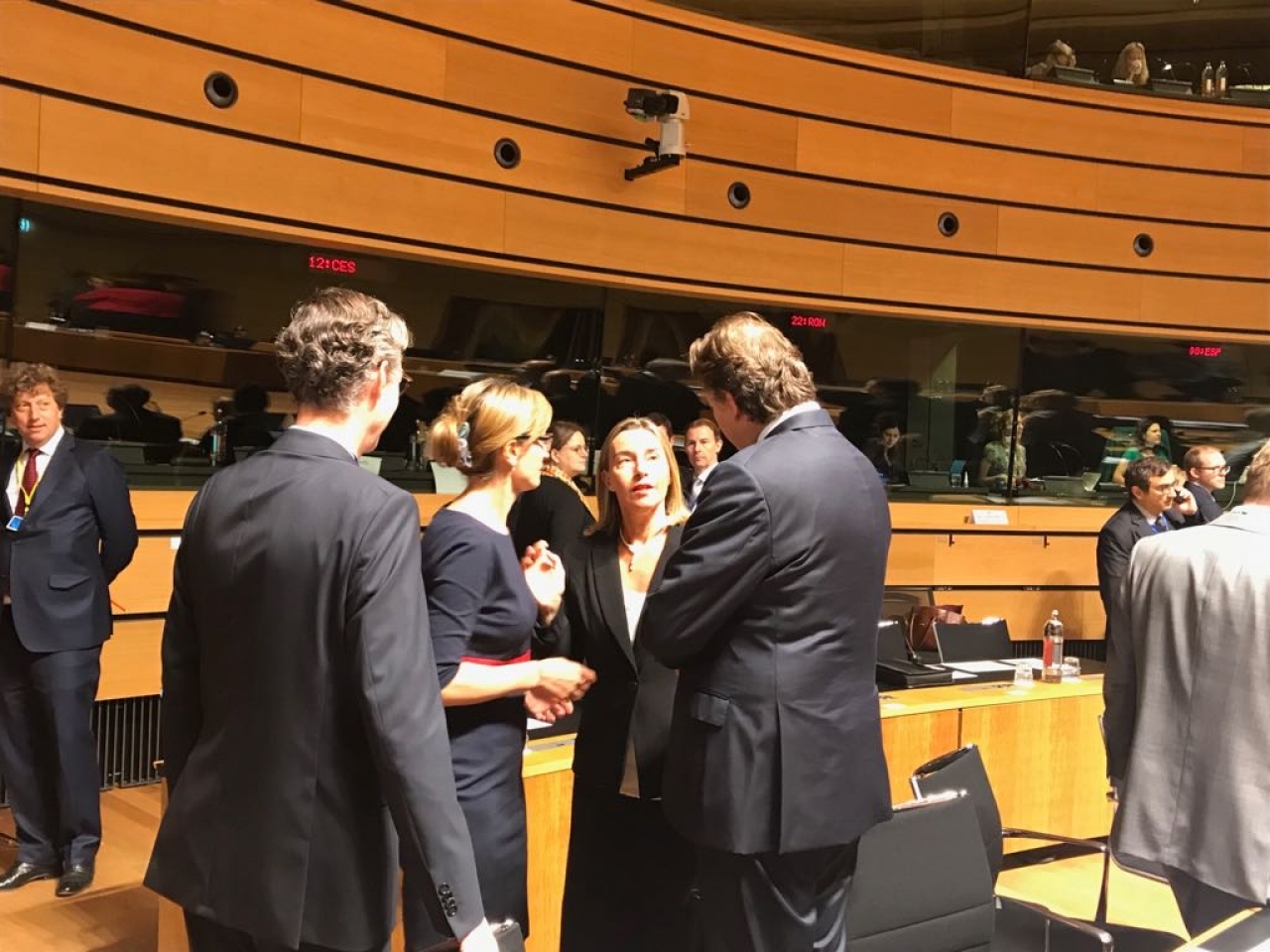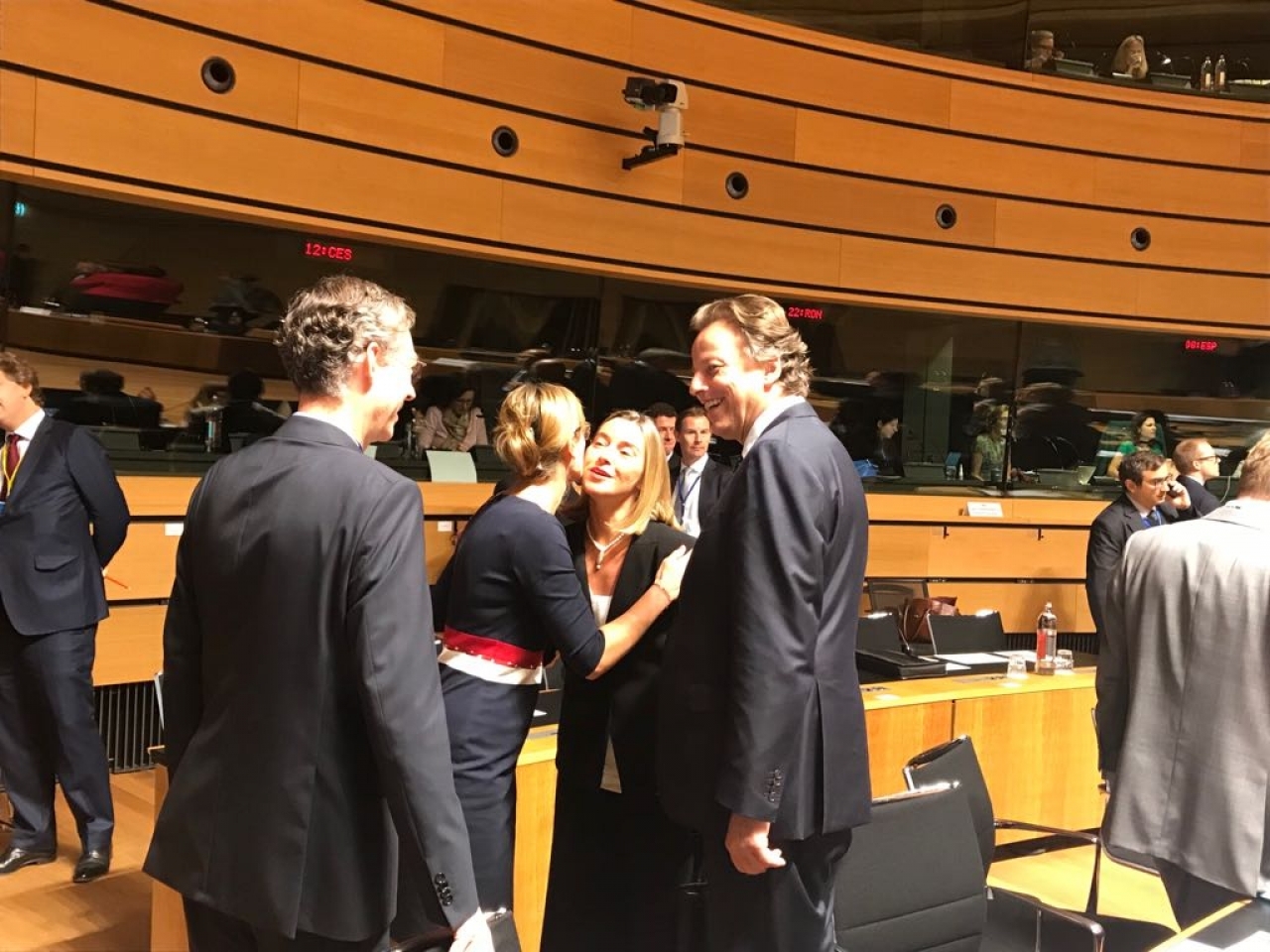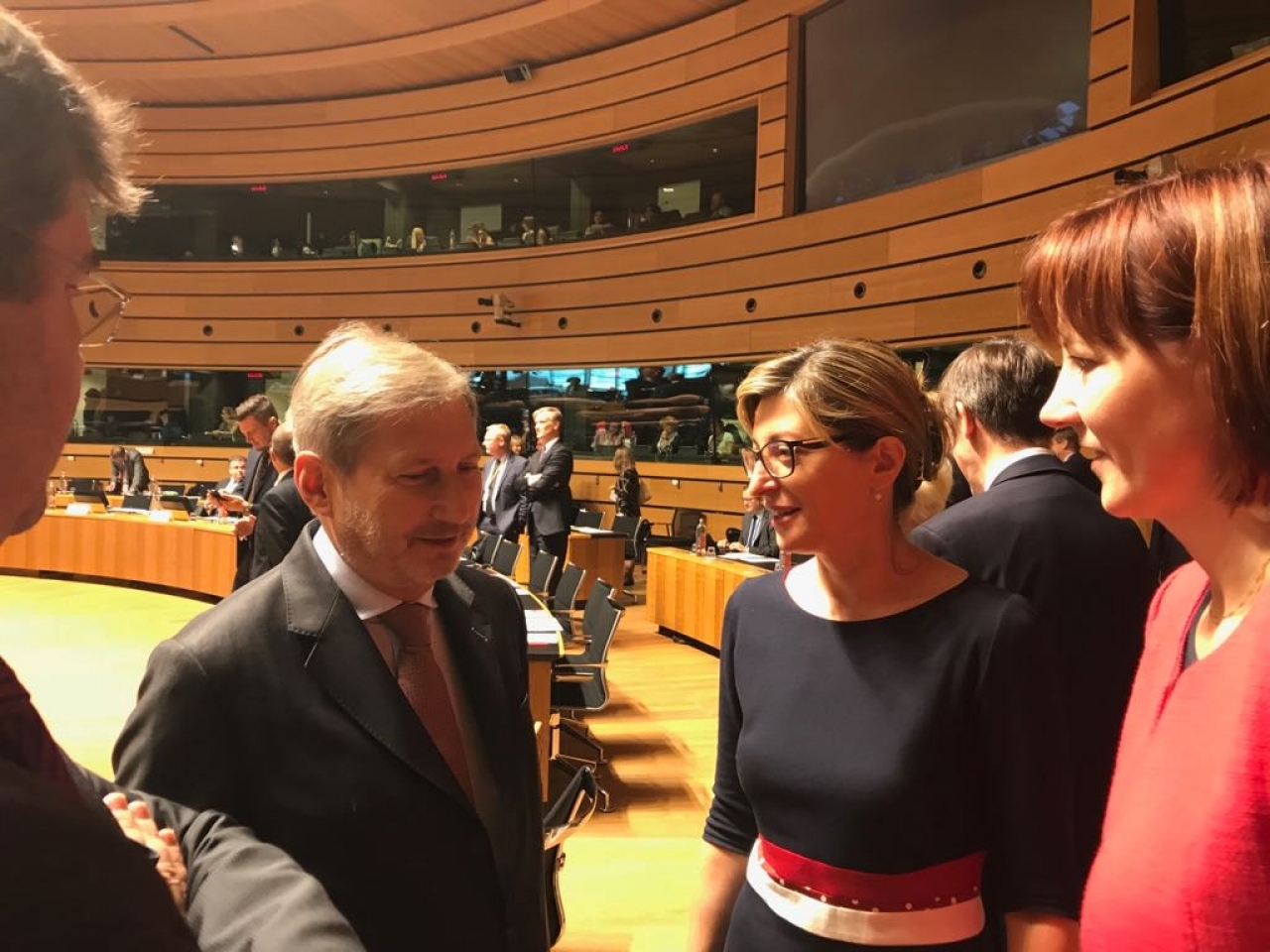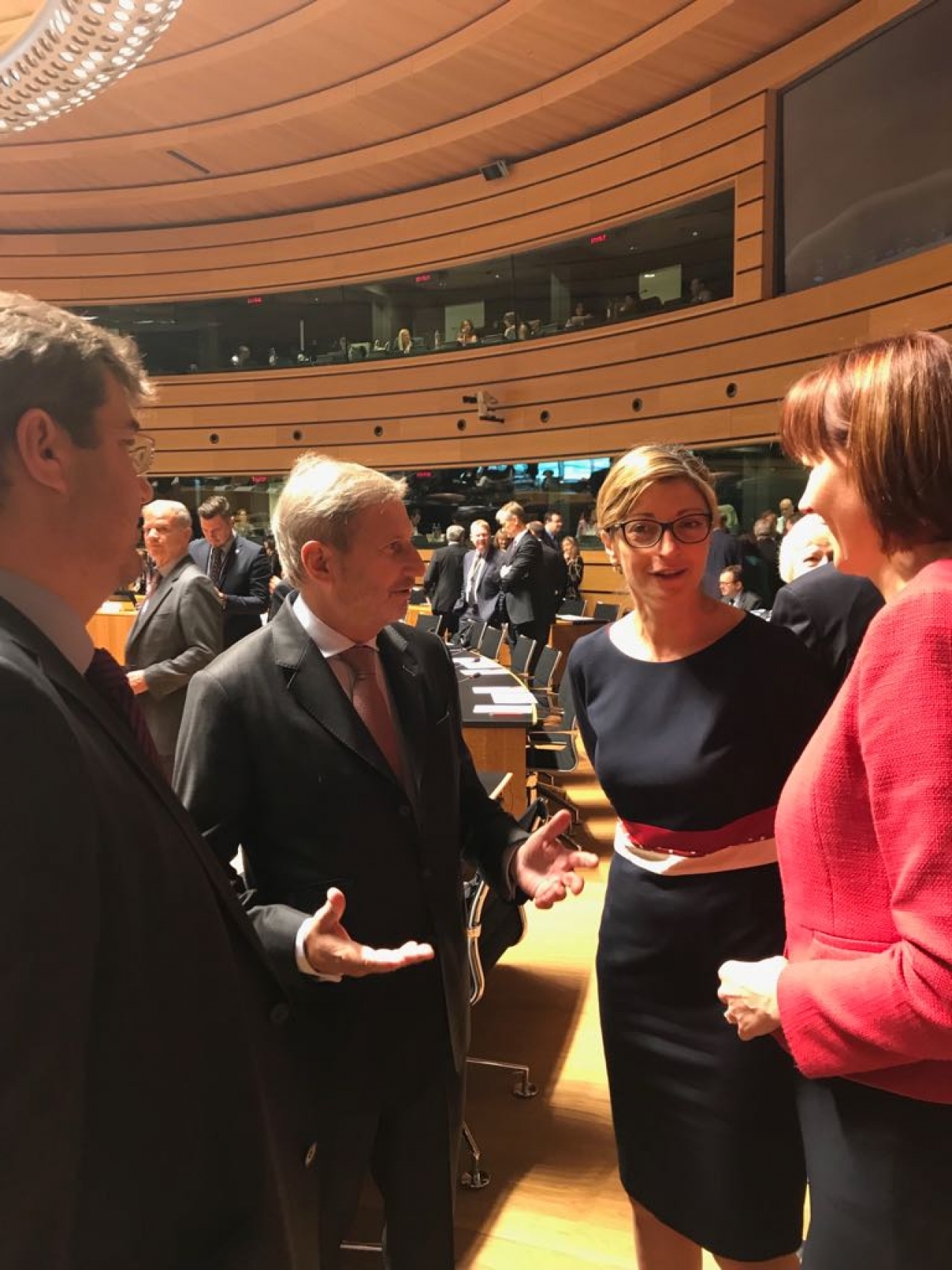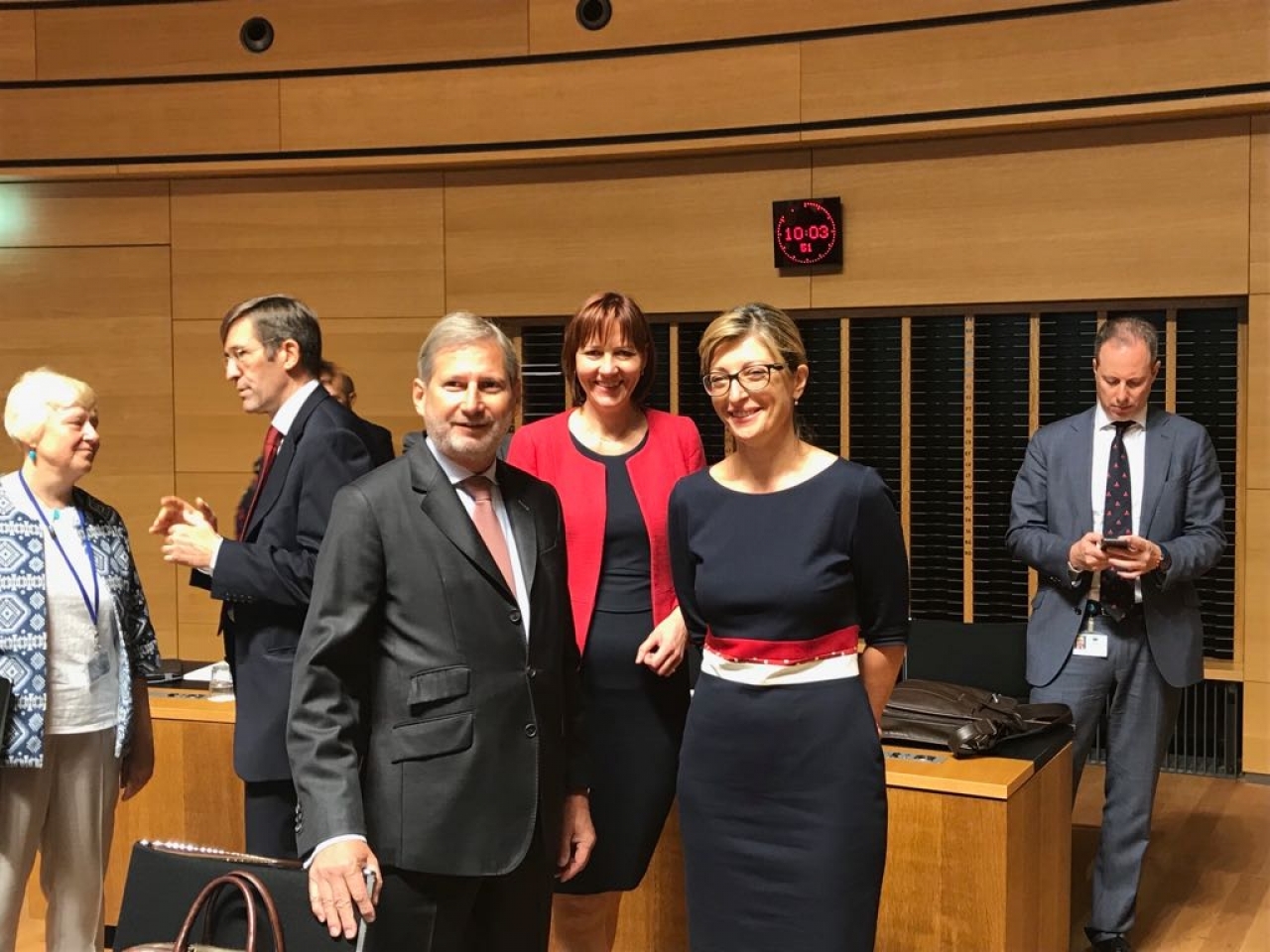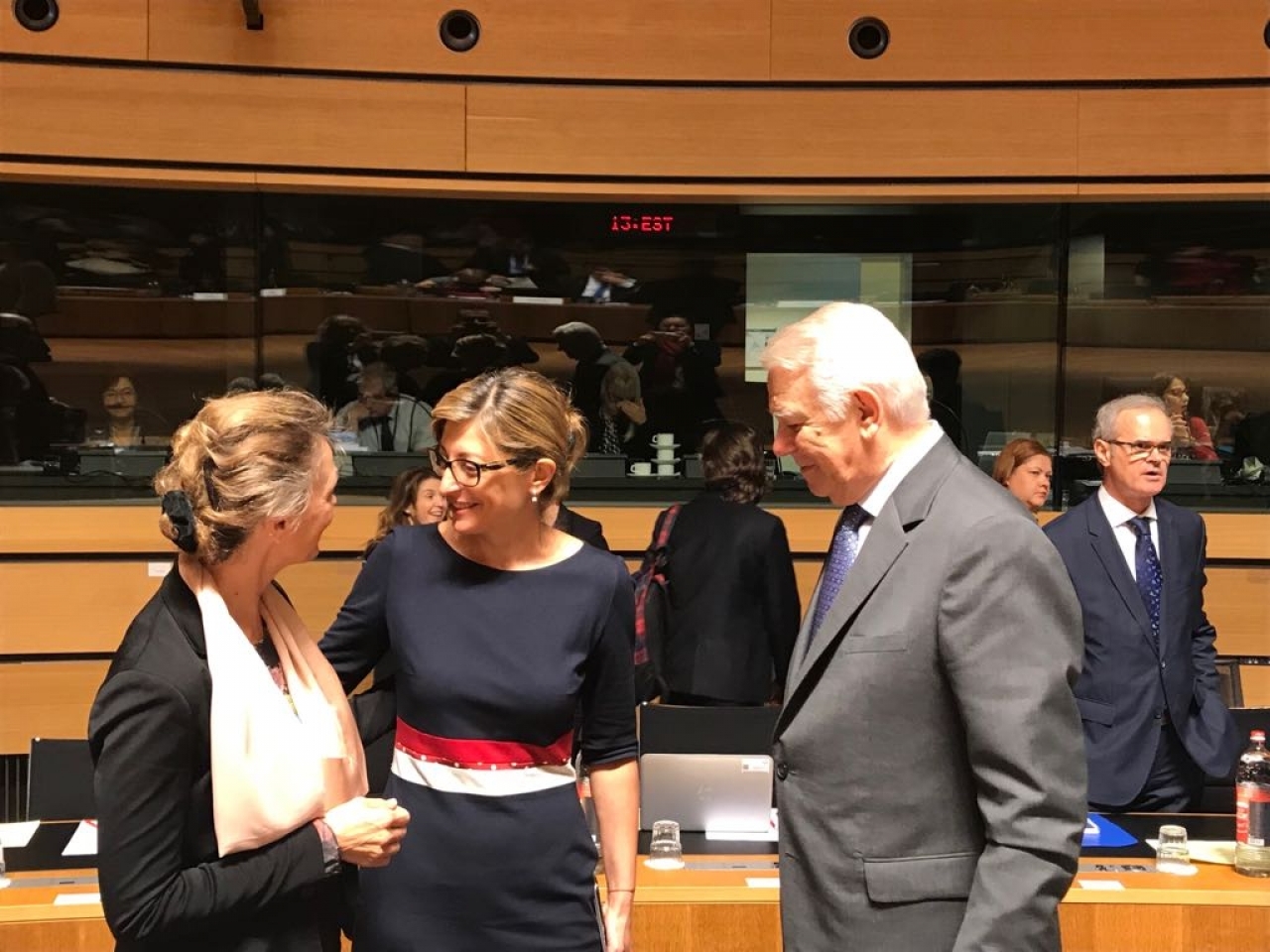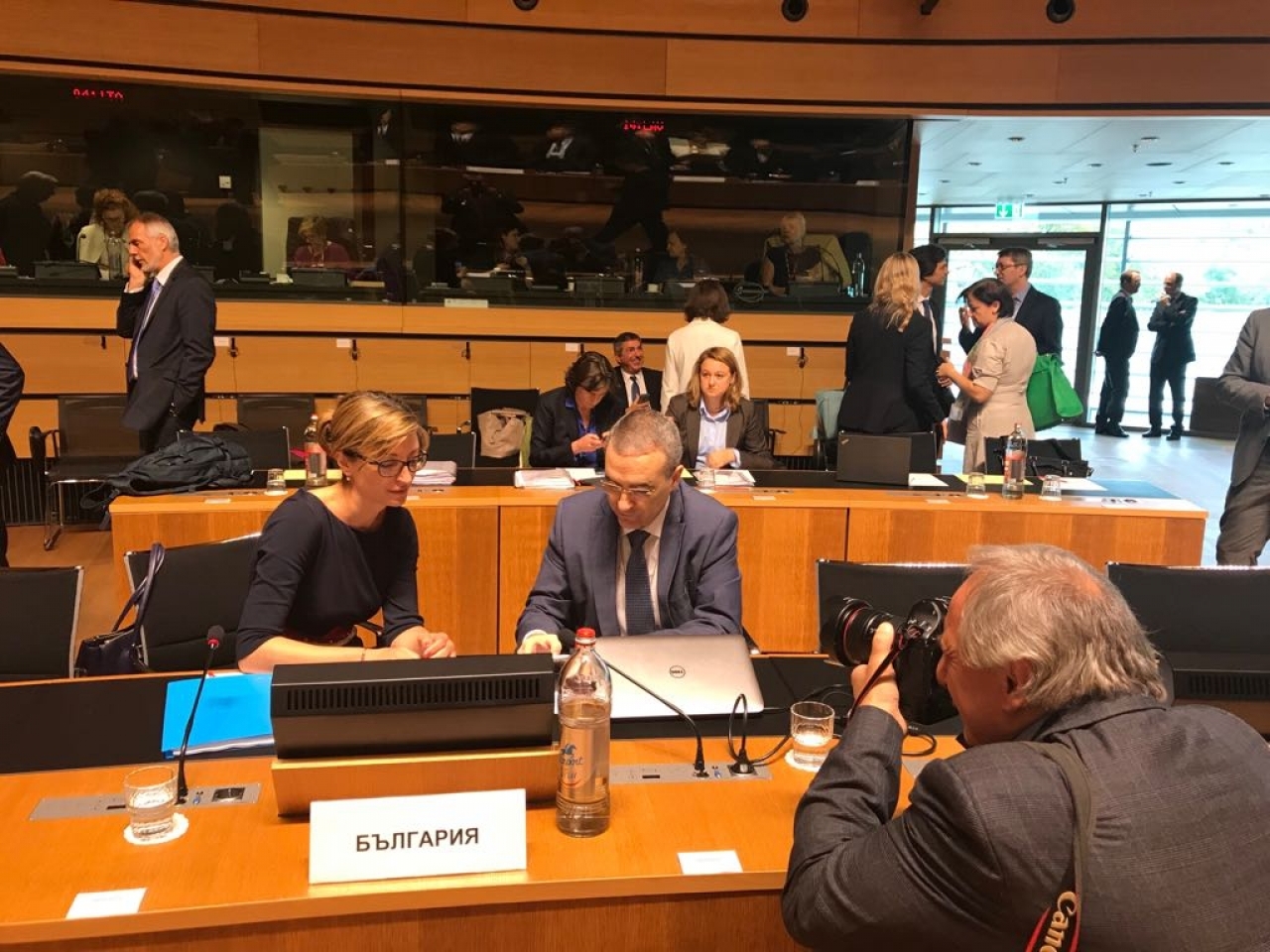Ekaterina Zaharieva and her EU colleagues categorically backed the nuclear deal with Iran
16 October 2017 News
Deputy Prime Minister and Minister of Foreign Affairs Ekaterina Zaharieva attended a regular meeting of the EU Foreign Affairs Council, which took place in Luxembourg today. Relations with Iran, cooperation with Turkey, the latest developments in the DPRK and the EU policy on human rights topped the agenda of the chief diplomats of the Twenty-Eight.
Ministers discussed Iran in the light of President Donald Trump’s decision not to certify to Congress Iran’s honouring its commitments under the Joint Comprehensive Plan of Action (JCPOA) for the Iranian nuclear programme. The Council adopted a statement on behalf of the 28 Member States saying that the EU will continue to implement its commitments under the Plan of Action, which allows for continuous dialogue with Iran. The statement emphasises that the deal was unanimously endorsed by UN Security Council Resolution 2231, as well as that the International Atomic Energy Agency has verified that Tehran is implementing all its nuclear-related commitments. While the EU expresses its concerns related to the progress of Iran’s ballistic missile programme and increasing tensions in the region, it reiterates the need to address these issues outside the Joint Comprehensive Plan of Action.
“We, the EU Member States, remain fully committed to the plan for Iran’s nuclear programme. We are sending a clear signal that a termination of the agreement would not bring a single benefit. The International Atomic Energy Agency has released eight reports, and they do not contain a single finding that Iran does not comply with the plan,” Minister Ekaterina Zaharieva stated. “We voice concern over certain steps taken by Iran in connection with ballistic missile tests, but they are not subject to this agreement. Our message to our allies over the ocean is that we hope that they will remain bound to this agreement because its unilateral termination will not result in anything good. Today’s statement on Iran showed that we can act quickly and correctly.”
Bulgaria, which took over the rotating Presidency of the EU Council in Tehran as from September 1, 2017, will spare no efforts for the implementation of the Union’s coherent policy towards Iran, including with regard to the Joint Comprehensive Plan of Action for the nuclear programme.
Over a working lunch, Ministers discussed EU-Turkey relations. An emphasis was laid on Turkey’s role for security and stability in the region and on the importance of continued cooperation in the field of migration, counter-terrorism, diversification of energy supplies, etc. The Council also stressed the need to pursue dialogue in the area of human rights and the rule of law.
Ekaterina Zaharieva noted the positive results of the implementation of the EU-Turkey Statement of March 2016.
In response to the ongoing provocative acts by Pyongyang, the Council adopted an additional package of EU autonomous sanctions against North Korea, including a total ban on EU investment in all sectors, lowering the amount of personal remittances transferred to the DPRK, adding natural persons and companies to the EU sanctions list, and a total ban on the sale of refined petroleum products and crude oil to the DPRK. The EU will be following closely that country’s actions and is ready to consider new, even more stringent sanctions if Pyongyang continues with the provocative acts which undermine peace and security in the region and worldwide.
Ministers also had debate on the EU policy on human rights, at which they were unanimous about the need of the EU continuing to stand up actively for respect for human rights. During the debate, concern was also voiced over the Law on Education adopted by Ukraine, which may lead to a restriction of the opportunities of members of national minorities to study their mother tongue.
At the Foreign Affairs Council, the EU chief diplomats adopted conclusions on Bosnia and Herzegovina, welcoming the continued presence of Operation Althea, launched a new civilian Common Security and Defence Policy (CSDP) mission in Iraq, and voiced concern over the grave situation of the Rohingya community in Myanmar/Burma.
Within the framework of the Council, Zaharieva commented to journalists on her working visit to the United Kingdom, where she attended a meeting of representatives of nine countries of Central and Eastern Europe, as well as her session with her British counterpart Boris Johnson. “We had quite a long conversation. I raised the question about Bulgarian citizens keeping their rights after Brexit, and he said that they will not be impaired. Our foreign policy priority: the integration of the Western Balkans, also figured high on the agenda. Next year the Berlin Process meeting is expected to take place in London. I was assured that Prime Minister Borissov will be invited,” Zaharieva said.

